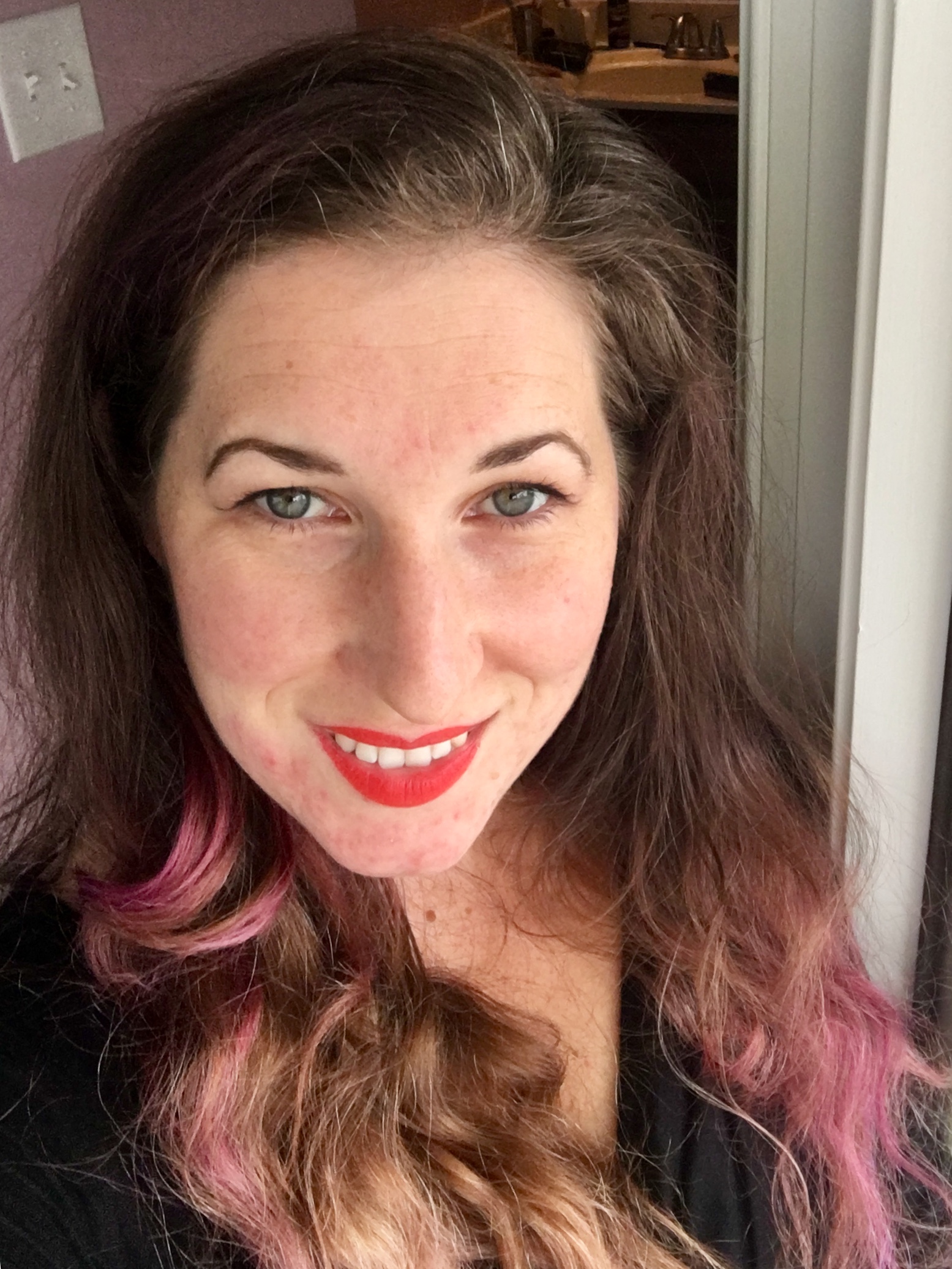Lana Martinez (MDiv’16): Leveraging faith & community organizing beyond the pulpit

Alumni Spotlight
BY MOLLIE TRAINUM
Lana Heath de Martinez is not your stereotypical seminary graduate. I first met with her in a bustling, cold coffee shop in the middle of downtown Richmond, and I was pleasantly surprised to see that she sports a stud in her nose and a subtle wash of purple over the ends of her hair. Immediately, I get the sense that she is young and vibrant and full of passion for her calling, which is not to a congregation, but to the Virginia Capitol.
Martinez, who is a preacher, lobbyist, a wife, and a mother, earned her Master of Divinity from Union Presbyterian Seminary in 2016. She is currently lobbying on behalf of Casa Virginia, a statewide organization advocating for immigrants and working families. Additionally, she partners with Church World Service, doing community organizing and political education.
As a community organizer-turned-lobbyist, Martinez has to work quickly to disseminate information as “quite often bills are not put on committee dockets until the night before.” She notes that “the way the Virginia legislature works makes it extremely difficult for the public to be involved, and that is to the detriment of the public.”
The journey to political organizing has been a personal one for Martinez. “While I was at Union, my husband was going through the immigration process himself. He was undocumented for 10 years living here, so we got into community organizing before I knew what that term meant,” she explains.
Through the activism in her faith community and her internship with the Public Policy Witness Purpose Group of the Presbytery of the James, Martinez says that she was able to meet “other people working [the Capitol] as lobbyists and organizers,” and from there found herself dedicated to political activism.
In addition to the connections her internship helped her forge, Martinez shared the most poignant lesson she learned from her time in seminary. “Dr. Katie Cannon, may she rest in power, would say all the time, ‘you’re going to have to mortgage your values, but don’t ever allow yourself to go into foreclosure,’ and that’s what I think about when I walk in here.” To Martinez, not going into foreclosure means confronting corrupt, racist politicians by “calling them out on their behavior and doing things that might not be popular.”
Faith is the very foundation for Martinez’s ethic of advocacy. “If we [who are not living in the margins] don’t have values that are guiding us, that come from our theology, then what are we basing our activism on?” she questions. “We need to interject theology into our politics and politics into our theology.”
Unfortunately, from Martinez’s perspective, the church still has strides to make in its role as an advocate for oppressed communities. “I see the church getting involved in some ways, but unfortunately I haven’t seen religious communities really support the work of impacted communities as they should,” she says.
While she acknowledges that “churches are doing good work,” she has also observed a “reticence among clergy and members to actually give up their space. They want to be welcoming to everyone from the community,” but they are often hesitant to reconfigure worship services to be “less academic and easier for people to participate in from different walks of life.”
According to Martinez, this kind of change “really does require sacrifice. Sometimes the sacrifice is money, and sometimes the sacrifice is just giving up a thing you love because it’s not inclusive.” Intentionally creating inclusive worship environments is just one way for the church to practice justice. Martinez points out that “actual justice is so sacrificial…if you’re not being asked to give something up and to understand things in a new way, your activism is static and that’s not progressing, growing, and that’s definitely not in concert with impacted folks.”
Another way Martinez suggests clergy can become involved is to “look at what the local organizers are doing in your community. For example, in Charlottesville there is a robust campaign to get the Charlottesville Albemarle Regional Jail to stop collaborating with ICE. A lot of community members and different groups from that region are leading that work, and so I really encourage clergy there to support that work.”
Sadly, the legislative system is not without flaws, which Martinez openly acknowledges. “I think it’s really important for people to see how it works and the many ways it doesn’t work…there’s not much transparency, and a lot of corruption.”
One form of this corruption is voter suppression. Martinez recognizes that there are people who are “denied a vote because of their criminal record, immigration status, age, inability to get to the polls.” She believes that “those of us who can get there have every responsibility and obligation to go to the polls with all of those people in mind and what would be liberating for them, so they too can have a voice.” Clergy especially bears this responsibility, and Martinez suggests that although “clergy are very used to having our own voices centered,” we can serve as a “bridge” for people whose voices have been suppressed.
Advocacy may seem like a daunting task, even to Martinez. “Every day I come here [to the General Assembly] and ask myself why I come here and continue to do this, because I feel like we’re not making any progress,” Martinez admits. She feels discouraged because “It’s hard to mobilize people here, even though they really care…people are always reaching out to see how they can be involved, so I don’t think it’s that people are complacent, it’s just really hard to get involved.”
Martinez does, however, believe that there is hope for redemption. “I do think the systems can be reformed. It will take the will of a lot of people to do it,” she says.








